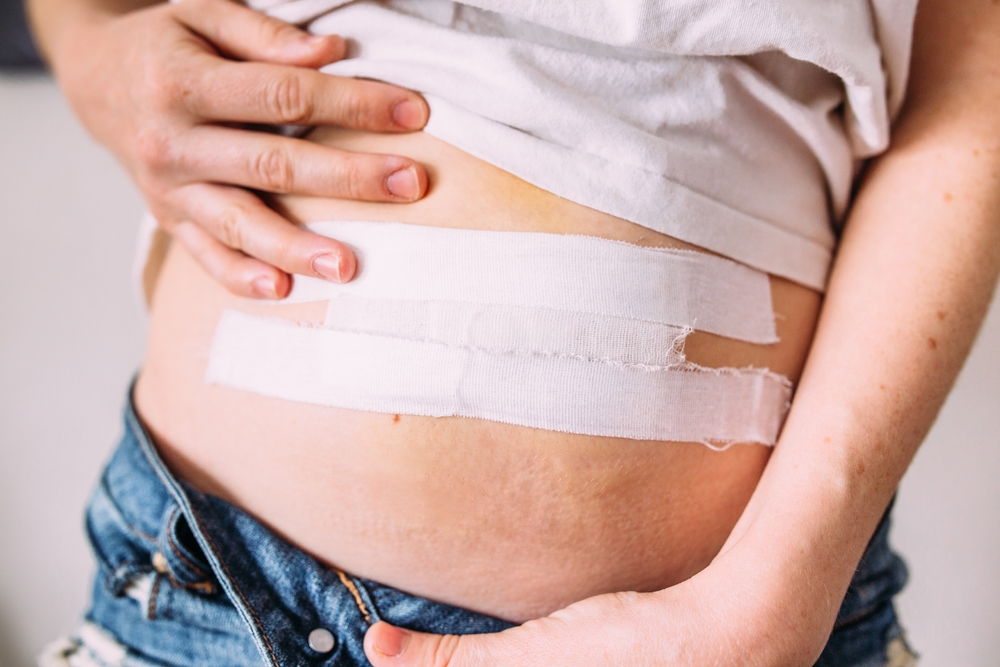How Long Does It Take to Recover From Hernia Surgery?
After hernia surgery, you are bound to experience a couple of side effects. Until the wound heals, you will likely feel twinging and pulling, along with a few cramps whenever you move.

But how long does it take to recover from hernia surgery? When will you be able to perform your daily tasks? There is no hard number for that, but the type of surgery and your actions can determine how long recovery will take and that’s exactly what we’re going to talk about in this blog.
Average Hernia Surgery Recovery Time
The recovery time after hernia surgery varies from one person to another. Some people may recover in a few days, whereas other people may take three to four weeks to get back on their feet. Usually, you should be able to return to work after one to two weeks, but even that is not set in stone and varies from person to person.
Your recovery will depend on your aftercare routine, along with factors such as:
- Hernia Type: Some hernias are more complicated than others, leading to a longer recovery time, and vice-versa. For example, inguinal hernias are often faster to recover from.
- Age: A younger patient will usually recover much faster in comparison to an older patient.
- Surgery Type: If you repair the hernia robotically or laparoscopically, it usually heals much faster compared to open surgery.
- Health Level: If you are a generally healthy person, you will typically heal much faster as compared to someone with a coexisting condition.
Dr. Patrick Moore says that overall, the hernia surgery recovery time takes two to three weeks at most. You may return to work the first few days after surgery if you have a desk job, but if you perform labor, you may want to wait a little bit longer until you’re cleared by Dr. Moore.
Tips to Speed Up Your Recovery
After hernia surgery, your body will eventually heal at its own pace. However, here are some self-care tips to ensure a speedy recovery:
Have Someone Check on You
After you get hernia surgery, you should make sure you have someone responsible to check up on you for the first 24 hours. They should be able to help you out and monitor you for any potential complications. Don’t try to go straight into chores and make sure you get plenty of rest because an adequate amount of sleep will help your healing process.

Have a Healthy Post-Op Diet
The last thing you want after a hernia surgery is to feel constipated. However, bowel obstructions are very common after this type of procedure, so you should drink plenty of fluids and have healthy meals. Otherwise, constipation may cause unnecessary pressure that can lead to a more painful recovery. a more painful recovery.
Apply Gentle Pressure When Moving
When you try to stand, move, or feel a cough or a sneeze coming up, apply gentle pressure on the area. This will protect it from movement and help speed up your hernia surgery recovery time.
Follow the Doctor’s Instructions
After the hernia surgery, Dr. Patrick Moore will give you a set of instructions on bathing and wound care that you should follow. You should be able to take a shower 24 hours after the surgery, but you may want to refrain from bathing for the next two weeks.
The Bottom Line
If you take the proper care of yourself, then you may recover from a hernia surgery quite fast. Make sure to get plenty of rest and do not cause unnecessary strain through sudden and unnecessary movements. Book a post-op appointment with Dr. Patrick Moore a few days after the surgery to ensure that you are healing well and that your recovery continues to go smoothly.
To find out more about hernia surgery, you can contact Patrick Moore, MD, at 951-477-5700. If you have any other questions, you may also access this contact page.




